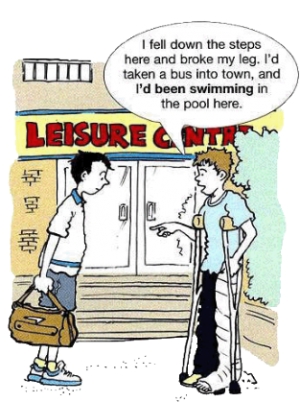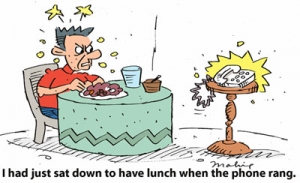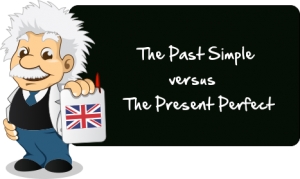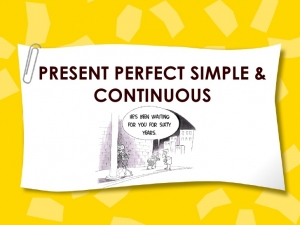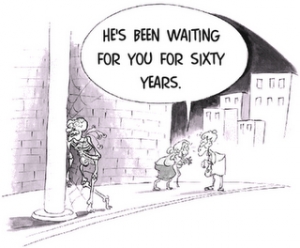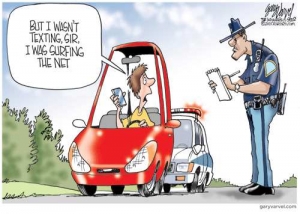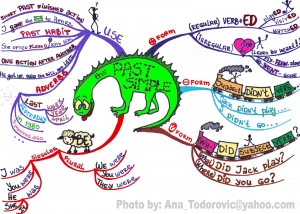Майя
Маткевич
Учитель английского языкаE.g. sentences
| Explanation | Past | Present | Future | |
|---|---|---|---|---|
| Simple Past | Simple Present | Future I Simple | ||
| action that takes place once, never or several times | He played football every Tuesday. | He plays football every Tuesday. | He will / is going to play football every Tuesday. | |
| actions that happen one after another | He played football and then he went home. | He plays football and then he goes home. | He will play football and then he will go home. | |
| state | He loved football. | He loves football. | He will love football. | |
| Past Progressive | Present Progressive | Future I Progressive | ||
| action going on at that moment | He was playing football. | He is playing football. | He will be playing football. | |
| actions taking place at the same time | He was playing football and she was watching. | He is playing football and she is watching. | He will be playing football and she will be watching. | |
| Past Perfect Simple | Present Perfect Simple | Future II Simple | ||
| action taking place before a certain moment in time; emphasises the result | He had won five matches until that day. | He has won five matches so far. | He will have won five matches by then. | |
| Past Perfect Progressive | Present Perfect Progressive | Future II Progressive | ||
| action taking place before a certain moment in time (and beyond), emphasises the duration | He had been playing football for ten years. | He has been playing football for ten years. | He will have been playing football for ten years. | |
Table of English Tenses
| tense | Affirmative/Negative/Question | Use | Signal Words |
|---|---|---|---|
| Simple Present | A: He speaks. N: He does not speak. Q: Does he speak? |
|
always, every …, never, normally, often, seldom, sometimes, usually if sentences type I (If Italk, …) |
| Present Progressive | A: He is speaking. N: He is not speaking. Q: Is he speaking? |
|
at the moment, just, just now, Listen!, Look!, now, right now |
| Simple Past | A: He spoke. N: He did not speak. Q: Did he speak? |
|
yesterday, 2 minutes ago, in 1990, the other day, last Friday if sentence type II (If Italked, …) |
| Past Progressive | A: He was speaking. N: He was not speaking. Q: Was he speaking? |
|
when, while, as long as |
| Present Perfect Simple | A: He has spoken. N: He has not spoken. Q: Has he spoken? |
|
already, ever, just, never, not yet, so far, till now, up to now |
| Present Perfect Progressive | A: He has been speaking. N: He has not been speaking. Q: Has he been speaking? |
|
all day, for 4 years, since 1993, how long?, the whole week |
| Past Perfect Simple | A: He had spoken. N: He had not spoken. Q: Had he spoken? |
|
already, just, never, not yet, once, until that day if sentence type III (If Ihad talked, …) |
| Past Perfect Progressive | A: He had been speaking. N: He had not been speaking. Q: Had he been speaking? |
|
for, since, the whole day, all day |
| Future I Simple | A: He will speak. N: He will not speak. Q: Will he speak? |
|
in a year, next …, tomorrow If-Satz Typ I (If you ask her, she will help you.) assumption: I think, probably, perhaps |
| Future I Simple
(going to) |
A: He is going to speak. N: He is not going to speak. Q: Is he going to speak? |
|
in one year, next week, tomorrow |
| Future I Progressive | A: He will be speaking. N: He will not be speaking. Q: Will he be speaking? |
|
in one year, next week, tomorrow |
| Future II Simple | A: He will have spoken. N: He will not have spoken. Q: Will he have spoken? |
|
by Monday, in a week |
| Future II Progressive | A: He will have been speaking. N: He will not have been speaking. Q: Will he have been speaking? |
|
for …, the last couple of hours, all day long |
| Conditional I Simple | A: He would speak. N: He would not speak. Q: Would he speak? |
|
if sentences type II (If I were you, I would go home.) |
| Conditional I Progressive | A: He would be speaking. N: He would not be speaking. Q: Would he be speaking? |
|
|
| Conditional II Simple | A: He would have spoken. N: He would not have spoken. Q: Would he have spoken? |
|
if sentences type III (If I had seen that, Iwould have helped.) |
| Conditional II Progressive | A: He would have been speaking. N: He would not have been speaking. Q: Would he have been speaking? |
|
Past Perfect Continuous
Unit 23 - Past Perfect Continuous (I had been doing)
Unit 23
Past Perfect Continuous
(I had been doing)
(a) Past Perfect Continuous образуется при помощи глагола to be в Past Perfect + Participle 1 (had been doing). Past Perfect Continuous может обозначать действие, которое завершилось перед другим действием в прошлом.
- Although the sun was shining, it was still cold as it had been
raining hard for two hours.
- He felt tired when he came home as he had been playing football.
(b) Past Perfect Continuous также употребляется,чтобы показать, как долго что-либо происходило перед тем, как что-то еще случилось.
- She had been sleeping for two hours when we returned.
- It had been raining for an hour when I left home.
(c) Past Perfect Continuous (had been doing)-
это прошедшее время от Present Perfect
Continuous (have been doing).
Сравните:
|
Present |
Past |
|
How long have you been waiting? (до сих пор) He's out of breath. He has been running. |
How long had you been waiting when the bus finally came? He was out of breath. He had been running. |
(d) Сравните формы Past Perfect Continuous
(had been doing) и Past Continuous (was/were doing):
She had been sleeping for three hours when we returned.
(есть есть указание на то, как долго продолжалось действие).
She was sleeping when we returned.
(нет указания на то, как долго продолжалось действие).
(e) Некоторые глаголы (например, know) не могут
использоваться в форме Continuous.
Смотри список этих глаголов в Unit 3b.
Past perfect
Unit 22 - Past perfect (I have done) - (I had done)
Unit 22
Past perfect (I have done) - (I had done)
(a) Past Perfect Tense образуется при помощи had + past participle (seen, gone, opened, written, looked, и т.д.).
Список причастий прошедшего времени от неправильных глаголов (past participle) смотри в Appendix2. Мы используем Past Perfect для того, чтобы показать:
1.что действие было завершено до определенного момента в прошлом:
- I had written a letter by two o'clock.
2.что одно действие было завершено перед другим действием в прошлом:
- She had already left when I came.
- I didn't know what I should write. I had never written letters before.
(b) Past Perfect (I had done) - это прошедшее время от Present Perfect (I have done).
Cравните:
|
Present |
Past |
|
I'm not hungry. I've just had lunch. The house is dirty. We haven't cleaned it for weeks. |
I wasn't hungry. I'd just had lunch. The house was dirty. We hadn't cleaned it for weeks. |
(c) Сравните Past Perfect и Past Simple:
- Was Mary ready to go to the cinema when you came to her?
- Yes, she had been ready by the moment.
- Jack wasn't in when I phoned him. He was in his office.
- Jack had just got home when I phoned him. He had been in his office.
Present perfect or past simple
Unit 20 - Present perfect (I have done) or past simple (I did)? (1)
Unit 20
Present perfect (I have done)
or past simple (I did)? (1)
(a) Рассмотрим ситуацию:
|
Мэри на уроке. Учитель просит учеников сдать тетради.Мэри оставила свою тетрадь дома.Она не может сдать её сейчас.
Следующий урок этого же дня. Мэри принесла свою тетрадь и она может подать ее учителю. Это означает, что тетрадь снова у нее. - Has Mary left her copy-book again? - No, she hasn't. She has brought it. - Did she leave her copy-book? - Yes, she did.
She left (past Simple) her copy-book but now she has brought (present perfect) it.
|
Форма present perfect (has brought) всегда сообщает нам что-либо о настоящем времени. `He has left her copy-book' означает, что у нее сейчас нет тетради (смотри Unit 13).
Форма past simple (left) говорит нам только о прошедшем. Когда мы говорим `She left it at home', мы не знаем, есть у нее сейчас тетрадь или нет.
Вот еще примеры:
- We went to the Crimea for our holiday, but now we've come back home.
- She had a lot of dirty dishes after the party, and she has washed them all.
(b) Не используйте present perfect (I have done) для событий или действий, не связанных с настоящим временем (например, исторические события):
- For some years Chekhov lived in his estate not far from Moscow.
- The state Florida in the USA was discovered by Ponce de Leon.
(c) Используйте present perfect (I have done), чтобы объявить (или сообщить новую информацию) о недавних событиях (см.Unit 13). Но если Вы продолжаете говорить о них, обычно используется
past simple (I did).
- Pussy Cat, Pussy Cat
Where have you been?
- I have been to London
To look at the Queen.
- Pussy Cat, Pussy Cat
What did you see there?
- I saw a little mouse
Under her chair.
Для дополнительной информации о present perfect
и past simple см.Unit 21.
Unit 21 - Present perfect (I have done) or past simple (I did) ? (2)
Unit 21
Present perfect (I have done)
or past simple (I did) ? (2)
(a) Present Perfect Tense употребляется для выражения законченного действия, связанного с настоящим, т.е. действия, которое началось в прошлом и продолжается в настоящий момент:
|
Ann has read a lot this year. John has written a letter today. |
This year и today период времени, который продолжается в настоящий момент. |
Если действие не продолжается в настоящий момент, а закончилось в прошлом (например, yesterday, in 1995...) надо использовать прошедшее время Past simple Tense (I did):
- John wrote a letter yesterday.
Present Perfect никогда не употребляется со словами:yesterday, two days ago, last week,when I was a child. В этом случае используется Past Simple.
- Two years ago I worked in the insurance agency.
- When I was a child I liked ice-cream very much.
Present Perfect используется со словами:
just, already, ever, never, recently,
lately, not yet.
- Have you ever been to France?
- I have just returned from France.
Если мы хотим знать о чем-то, что случилось в прошлом, мы употребляем Past Simple Tense.
- When was he born?
- When did you go there?
Мы также можем задавать вопросы с утвердительными или отрицательными фразами в Present
Perfect Tense. Если предложение утвердительное, хвост вопроса - или: краткий общий вопрос будет отрицательным, а если же предложение отрицательное, то хвост вопроса будет утвердительным.
Например:
- He has already finished his dinner, hasn't he?
- He hasn't finished his dinner yet, has he?
Present perfect continuous or present perfect simple?
Unit 17 - Present perfect continuous (I have been doing) or present perfect simple (I have done)?
Unit 17
Present perfect continuous (I have been doing) or
present perfect simple (I have done)?
(a)
|
- He is exhausted. - He has been riding a bicycle. Has been riding - это время present perfect continuous.
Нас интересует действие. Неважно, закончилось оно или нет. В нашем примере процесс еще продолжается. |
- The bicycle is broken. - He has ridden the bicycle. Has ridden - это время present perfect simple.
Здесь важным является то, что некий процесс уже завершен. Нас интересуют только результаты процесса, а не он сам. |
|
(b) |
|
Мы используем форму continuous, чтобы сказать, как долго длилось некое действие:
- She has been reading all day long. - They have been washing the car for two hours. - You have been talking with her all the morning. |
Мы используем форму simple, чтобы сказать о том, как много мы сделали или сколько раз мы выполняли некое действие: - She has read the whole book today. - They have just washed the car. - I have told her everything. |
См. Unit 18 для дополнительной информации о
present perfect и how long?
(c) Некоторые глаголы не употребляются в форме continuous, например, know.
Вам надо говорить have known а не `have
been knowing'. Список таких глаголов смотри
.
в Unit 3b.
- I have known her since my childhood.
Present perfect continuous
Unit 16 - Present perfect continuous (I have been doing)
Unit 16
Present perfect continuous
(I have been doing)
(a) Рассмотрите данный пример:
|
- Is the tea cattle boiling? - No, it is not. But the water is quite hot. - It has been boiling. - I have been sleeping for more than ten hours! |
has been boiling и have been sleeping - это время Present Perfect Continuous от глаголов to boil, to sleep |
|
образование времени Present Perfect Continuous: |
|
I/we/they/you have (= I've и т.д.)
he/she/it has (= he's и т.д.) |
been doing
|
Мы используем Present Perfect Continuous,когда мы говорим о действии (достаточно продолжительном), которое началось в прошлом и недавно (или только что) закончилось.
Рассмотрите несколько других примеров:
- She has been washing her hair, but it may be dry now.
- Bill has been dining with us tonight.
- I’ve just been having such a delightful chat with Margaret.
(b) Мы также используем Present Perfect Continuous, чтобы спросить или сообщить о том, как долго что-то длилось. К настоящему моменту действие (ситуация), возникшая в прошлом, только что закончилась (или еще продолжается).
Рассмотрим примеры:
- I have been writing for more than an hour.
- We’ve been staying here nearly a week.
- You have been making excuses for him all your life.
Вы можете использовать Present Perfect Continuous
с how long, for и since для описания периодических действий:
- She has been having English lessons since she was five.
- How long have you been playing tennis?
Информацию о Present Perfect + since/for
О различии между Present Perfect и Present
Perfect Continuous см. в Unit 17 - Unit 18.
Present Perfect
Unit 13 - Present Perfect (I have done) (1)
Unit 13
Present Perfect (I have done) (1)
(a) Present Perfect относится к настоящему времени и не употребляется в повествовании, где описываются действия в прошлом!
Present Perfect употребляется для выражения законченного действия, но результат этого действия непосредственно связан с настоящим, причём в этом случае для нас важно совершение этого действия.
|
- I have broken my pencil! - I can not write the dictation. Не так важно когда, главное, что:I have got no pencil now. и результат:I have no pencil to write with. |
|
Спряжение глаголов в Present Perfect (Simple) |
|
I/we/they/you have(= I've etc.)
he/she has (= he's etc.) |
broken
|
|
I (etc.) haven't
he/she hasn't |
broken |
have you(etc.)
has he/she |
broken? |
- She has gone off to the woods. (= She is in the woods now.)
- Have you washed your hands? (= Are they clean now?)
Present Perfect образуется при помощи
have/has + the past participle.
Past Participle обычно имеет окончание -ed
(opened, decided), но много и неправильных глаголов (broken,lost, written, done и т.д. см.Appendix 2).
(b) C этим временем могут употребляться слова just
(небольшой отрезок времени тому назад) и
already(действие случилось быстрее,чем ожидалось):
- What’s the matter? Why are you so sad?
- I have just received a letter from my friend. She is ill.
- Do you know that Tom...?
- We have already heard about that!
- May I go for a walk?
- You must do your homework.
- I have already done it.
- Let’s water the plants! - I have just done it.
(c) Помните разницу между gone to и been to.
См. также Unit 119.
- Pussy Cat, Pussy Cat,
Where have you been?
- I have been to London
To look at the Queen.
Это означает, что кошка была в Лондоне, но уже вернулась назад.
- Don’t look for the cat. It has gone to the garden. (= The cat is not
here, it is either in the garden или on its way
to the garden.)
Unit 14 - Present Perfect (I have done) (2)
Unit 14
Present Perfect (I have done) (2)
(a) Рассмотрим пример:
Jane: Have you read any books by Dostoyevsky?
Mary: Yes, I have read some.
Jane: And have you read any books by Chekhov?
Mary: Of course, I have read his plays and short stories.
He is my favorite Russian writer.
Jane: And what about Bel’yaev?
Mary: I have never heard of this writer!
Джейн и Мэри говорят книгах, которые Мэри читала в своей жизни (и это период продолжается до настоящего времени).
Мы используем Present Perfect, когда говорим о периоде прошедшего времени, который продолжается до настоящего времени. Приведем несколько примеров:
- Have you ever been to France?
- She has been to this museum several times.
- Have you ever heard his story?
- I have never seen such a terrible film.
Это время present perfect употребляется,чтобы сказать, что мы никогда не делали что-то или не делали что-то в период времени,который продолжается до настоящего времени.
Мы часто используем c present perfect ever или never:
- She has never read a single book!
- I havn't read the paper for the last two days.
- She has not written to me for a year,- said Roy.
(b) Мы часто используем Present Perfect с
выражениями This is the first time...,
It’s the first time..., и т.д.
- This is the first time, I have visited the USA.
- It is the first time, they have come to our new flat.
Unit 15 - Present Perfect (I have done) (3)
Unit 15
Present Perfect (I have done) (3)
(a) Рассмотрите данный пример:
|
Roy: Have you seen Mary? Ann: No, I haven’t. I hope to see her at your party. |
Снова мы говорим о периоде времени, который длится до момента речи. |
Таким образом, употребляется Present Perfect Tense.
Примеры:
- They have translated many interesting articles recently.
- Why have not you gone with them?
- I’ve completed writing my exercises at last!
(b) В отрицательных и вопросительных предложениях
с present perfect часто используется yet
(см.также Unit 107). Yet показывает, что
говорящий предполагает, что что-то случится.
- She has not read the article yet.
- Has Mr. Smith left his house yet?
(c) Это время часто употребляется с такими
выражениями как this year, this week, this
morning, this evening, this term, today
и т.д.(т.е. периоды времени, которые не
закончились в момент речи):
- I have not even had coffee this morning.
- This year we have taken only one assistant. (Год еще не закончился,
и возможно, мы возьмем еще помощников.)
- I have had only one new dress this summer.- exclaimed Jane.
(Лето еще не закончилось.)
(d) Не забывайте, что когда действие совершается длительный период времени и не закончено к моменту речи, также может употребляться Present Perfect
Continuous (I have been doing):
- They have been talking all the morning.
Present perfect continuous см.Unit 16, Unit 17, Unit 18.
Present perfect и past simple см.Unit 20, Unit 21.
Unit 18 - Present perfect (I have done/ I have been doing) with how long, for, since
Unit 18
Present perfect
(I have done/ I have been doing)
with how long, for, since
(a) Времена Present Perfect и Present Perfect Continuous используются для того, чтобы показать, как давно началось некоторое действие.
- I have been thinking about it for a long time.
- They have been married for many years.
- He has been reading since he came.
(b) Оба времени Present Perfect (I have done) и
Present Perfect Continuous (I have been doing) употребляются для выражения действий, повторяющихся на протяжении определенного
отрезка времени. См. также Unit 16b.
- She has been playing chess for 10 years.
- She has played chess for 10 years.
с Мы используем Present Perfect (I have done) для описания ситуаций, которые существуют в течение длительного времени(особенно, если употребляется always).Обратите внимание, что ситуация еще сохраняется:
- My parents have always lived in this small town.
- He has looked after Miss Gregg for many years now.
Для ситуаций, возникших недавно, мы используем Present Perfect Continuous (I have been doing):
- My friend has been staying with us for several days.
- I have been learning English since September.
(d) Ряд глаголов, например, be, have, know
(список смотри в Unit 3b и глагол have
в Unit 24) обычно не используются в
Present Perfect Continuous и вместо Continuous употребляется Present Perfect:
- I've loved her since she was a child.
- But we have been in conference for two hours - he said.
(d) Если известен период времени, в течение которого совершалось действие или момент, в который это действие началось, никогда не используйте Present Simple (I do) или Continuous (I am doing).
- What are you doing here? I'm waiting for my friend.
- How long have you been waiting for her?
- I've been waiting for her for about an hour.
Unit 19 - Present perfect with since, for, how long. Past simple with when.
Unit 19
Present perfect with since, for, how long.
Past simple with when.
(a) Как Вы уже заметили, since и for часто употребляются в предложениях с Present Perfect Continuous. Мы используем since для указания момента начала действия:
- She has been watching TV since early morning.
- They have been travelling since last Monday.
For употребляется для указания всего периода времени:
- He has been working in that firm for two months.
- It has been raining for 3 hours.
- They have been agruing about that for more than an hour.
Но с выражениями
all day all morning all week all my life..
НИКОГДА НЕ УПОТРЕБЛЯЕТСЯ for.
- It has been raining all day long.
- She has been training all week long.
(b) Используйте Present perfect (I have done/I have been doing), чтобы спросить или сказать, как долго (how long) что-то происходит (до настоящего момента). Помните структуру How long is it since...?:
- It's two years since I saw your flat.
- It's ages since we visited this place.
- How long has it been raining?
- It's been raining since one o'clock.
(c) Обратите внимание, что с when всегда употребляется Past Indefinite Tense (I did), не зависимо от того, спрашиваете ли вы что-либо или говорите:
- When did he come home?
- When did you see this film?
- He was preparing for his report, when the telephone rang.
- When I entered the room I saw my mother sitting in the armchair.
(d) Помните конструкцию How long is it since?
- It’s two years since I saw your flat.
- It’s ages since we visited this place.
Past continuous
Unit 12 - Past continuous (I was doing)
Unit 12
Past continuous (I was doing)
(a) Изучите данную ситуацию:
|
|
Yesterday at that time I was playing football.
|
|
was playing - означает, что он был в процессе игры в футбол. Он уже начал игру, но еще не закончил ее. Это время называется Past continuous |
Мы используем Past continuous, чтобы сказать,что действие началось или продолжается в какой-то момент в прошлом. Например:
- She was sitting comfortably on the floor.
- The boy was throwing stones at a kitten which was sitting on
the fence across the street.
Past continuous не говорит нам что-либо об окончании действия. Возможно, оно потом закончилось, возможно - нет. Сравните:
- She was cooking the supper. (past continuous) = Она готовила ужин,
но мы не знаем, перестала ли она это делать.
- She cooked the supper. (past simple) = Она начала и
закончила готовить ужин.
Определенный момент часто не выражен прямо,но понятен из ситуации. Например:
- Red Chief was sitting on Bill's chest holding him by hair with one hand.
He was trying to take Bill's scalp.
- He was standing in front of him ready to strike him with a big stone.
(b) Время Past continuous образуется при помощи прошедшего времени глагола to be и причастия настоящего времени. Например:
|
I/he/she was
we/they/you were |
playing
|
(c) Мы часто используем Past continuous, чтобы сказать, что кто-то находился в процессе совершения какого-либо действия в определённый момент в прошлом. Действие или ситуация уже начались перед этим моментом, но еще не закончились.
- This time yesterday the Time Traveller was talking to a group of his
friends about the problem of travelling in time.
(d) Это время не говорит нам о том, закончилось ли действие:
- The Time Ttraveller was moving further and further into the future.
(e) Время Past continuous часто употребляют с Past simple,чтобы сказать, что что-то еще произошло во время совершения действия:
- Just at daybreak I woke up because Bill was screaming.
- When I came back to a cave I saw that Bill was standing with his
back to the wall.
Но чтобы сказать, что одно произошло после другого, используется past simple:
- Arthur gave the sailor his watch and money and the salor went away.
(f) Время Past continuous часто употребляется после таких фраз, как:
the whole day, all day long.
- The car was waiting for them at the stage door the whole day.
- All day long he was walking noiselessly, like a scout.
(g) Время Past continuous употребляется для выражения действия, рассматриваемого как постоянно продолжающийся процесс.
В этом случае используются такие наречия, как:
always, ever, constantly.
- His photograph was always appearing in the illustrated papers.
- Ann was constantly complaining of being lonely.
Запомните: Существуют несколько глаголов (например know), которые обычно не используются в continuous tenses. Список этих глаголов смотрите Unit 3b.
Past simple
Unit 11 - Past simple (I did)
Unit 11
Past simple (I did)
(a) Изучите пример:
|
- I wrote a letter to my grandfather yesterday. wrote - это время Past simple
|
Мы используем Past simple,чтобы рассказать о событиях или ситуациях в прошлом.
- Mr. Gosselyn read The Times, went to church on Sunday and
accompanied his wife to tea-parties.
- She won every prize that was open to her.
- It was two years later that Jimmie Langton discovered her.
- He blushed and his blue eyes shone.
- Her aunt talked in a deep loud voice.
(b) Очень часто мы употребляем Past simple tense c такими словами и фразами, как:
yesterday, last night, last week, last month,
last year,last summer(autumn, winter, spring),
at six(seven...) o'clock on Sunday(Monday...),
an hour(a week...) ago, the other day,
in 1994(1966), during the war(the revolution..)
- Mr. Smith began teaching in a secondary school in England in 1988.
- On Monday he came to the office by taxi.
- I went to Ireland in a fishing boat two years ago.
- Last month Tom and Jim visited Scotland and climbed
the mountains.
(b) Многие глаголы в Past simple tense
оканчиваются на -ed или d. Такие глаголы
называются правильными.
Например:
- She walked round the garden with the colonel and listened
intellegently while he talked of peace.
- Her beauty created a sensation in Middlepool.
- He stayed in Middlepool for two years.
- She looked straight into his eyes.
- Julia smiled at the complacency on her husband's handsome face.
- Michael stared at them gravely.
Формулировку правил смотрите Appendix 3.
(d) Но много важных глаголов - неправильные
(irregular). Это означает, что past simple
не заканчивается на-ed.
Например:
1.Глаголы, в которых изменяется гласная в корне:
tell - told Mrs. Gosselyn told her about India.
give - gave He gave a little laugh of embarrasment.
take - took She took him into a small room behind the dining-room.
fly - flew The children flew to meet their mother.
see - saw I last saw Jill over three years ago.
2.Глаголы, в которых изменяется гласная в корне и добавляется -d или -t:
teach - taught Her aunt taught her how to walk and how to hold herself.
leave - left He left the room an hour ago.
sell - sold The baker sold good cakes.
bring - brought John brought his little brother to school.
buy - bought They bought that fruit from Greece.
catch - caught Mr. Brown caught the eight o'clock train.
3.Глаголы, в которых изменяется последняя d на t:
send - sent He sent a letter to his aunt yesterday.
build - built Jack built his house last autumn.
bend - bent That stormy night trees bent before the wind.
lend - lent The other day Dolly lent them money.
4.Глаголы, в которых одинаковая форма
infinitive и Past simple:
cut - cut Aunt Aggie cut the cake.
hit - hit The cruel driver hit the horse.
put - put Yesterday the worshippers put their gifts before the gods.
set - set The sailors, after quarreling with their captain,
set him adrift on the ocean in an open boat.
split - split The ship split in two under the force of the stormy waves.
burst - burst Dolly burst into laughter.
let - let The prisoner let himself down from his window with
a rope made of knotted sheets.
5.Глаголы, в которых разная грамматическая основа:
go - went Ann went up to the drawing-room.
Список неправильных глаголов смотрите Appendix 2.
(e) Но некоторые глаголы могут быть правильными
и неправильными:
burn - burnt или burned
Вы можете сказать:
The old house burnt down The old house burned down
last night in the big fire. или last night in the big fire.
smell - smelt или smelled
The dog smelt at the stranger for или The dog smelled at the stranger for
a minute but did not recognize him. a minute but did not recognize him.
dream - dreamt или dreamed
I dreamt of my old home last night. или I dreamed of my old home last night.
Список этих глаголов смотрите Appendix 2.
(f) Формой past simple от глагола be (am/is/are)
является was/were:
|
I/he/she/it was we/you/they were Julia was quick-witted. She was a born actress. Michael's eyes were heavy with tears. |
(g) В вопросительных и отрицательных предложениях
с Past simple мы используем
did/didn't + инфинитив (do/open/rain и т.д.):
- Did they like the idea of his going on the stage?
They didn't like the idea of his going on the stage.
- Did Tom dance with Helen yesterday?
No, Tom didn't dance with Helen yesterday.
- She knew that she didn't look well in costume.
(h) Запомните,что обычно используются
did/didn't с have:
- Did you have a bath this morning?
- We didn't have any more flowers in the garden.
Но с глаголом be (was/were) мы
не употребляем did:
Например:- Was he at home yesterday?
- He was not exactly mean, but he was not generous.
О past simple смотрите Unit 12, Unit 20, Unit 21.

